Juggling Shift Work and Triathlon with Age-Group athlete Jules Whitton
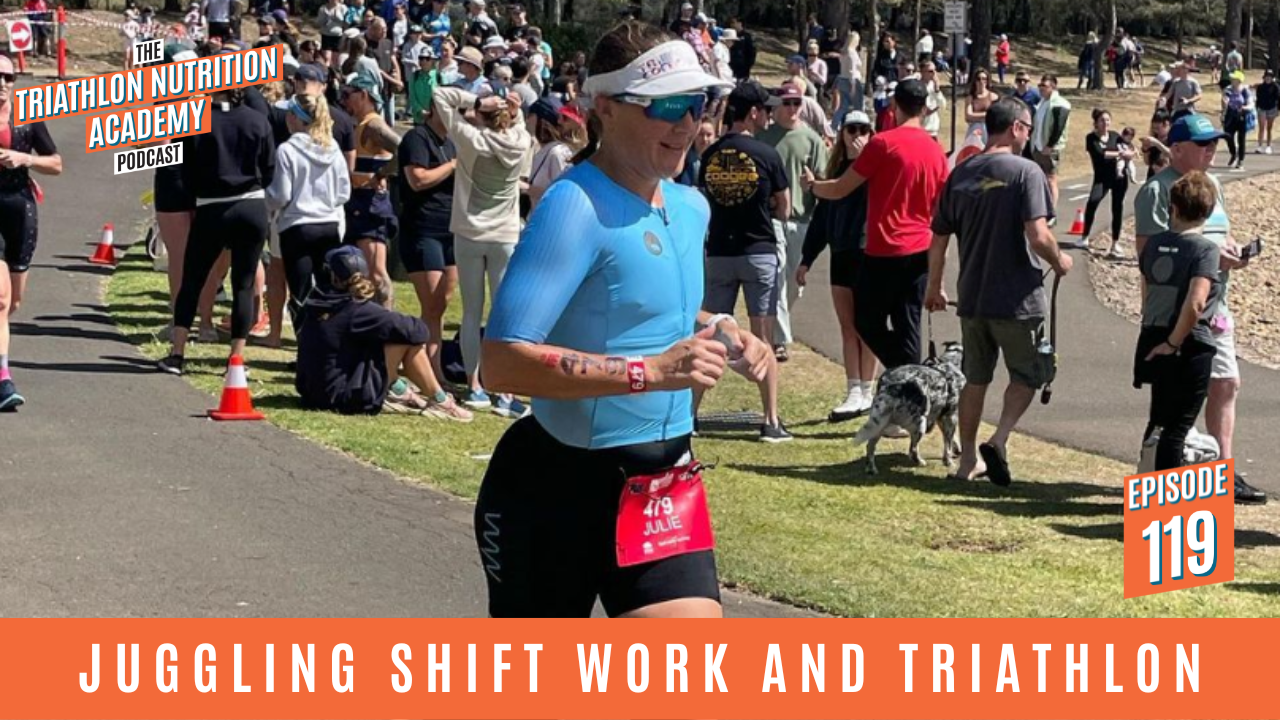
For triathletes working shifts or unpredictable hours, fuelling performance is a unique challenge.
No set routine means you can’t just cookie-cut a generic training and nutrition program. So how do shift workers successfully periodise nutrition amidst the chaos?
We asked paramedic and 10-year triathlete Julie Whitton for her tips on fueling through a variable schedule. With rotating day, afternoon, and overnight shifts, training consistency goes out the window!
Let’s break down Julie’s hard-won advice for balancing nutrition and still performing at your best through shift work madness:
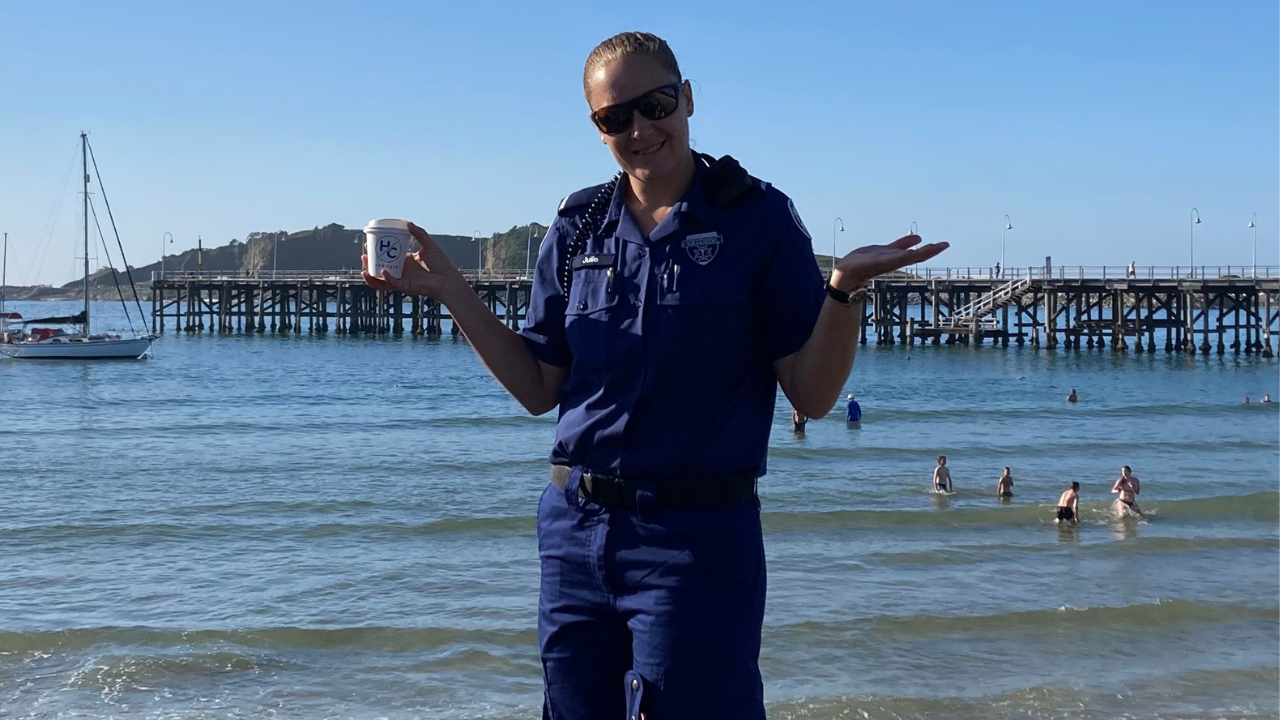
Be Prepared at All Times
Keep easy-to-eat snacks on hand at all times. Your work can interrupt set meal times, so you need to have grab ‘n go options. Bars, shakes, sandwiches, and fruits make quick, portable fueling possible.
Pack a small cooler bag and stash it in your car. That way healthy snacks are on call to grab between emergency calls or whenever...
Continuous Glucose Monitoring for Triathletes with Greg Cox
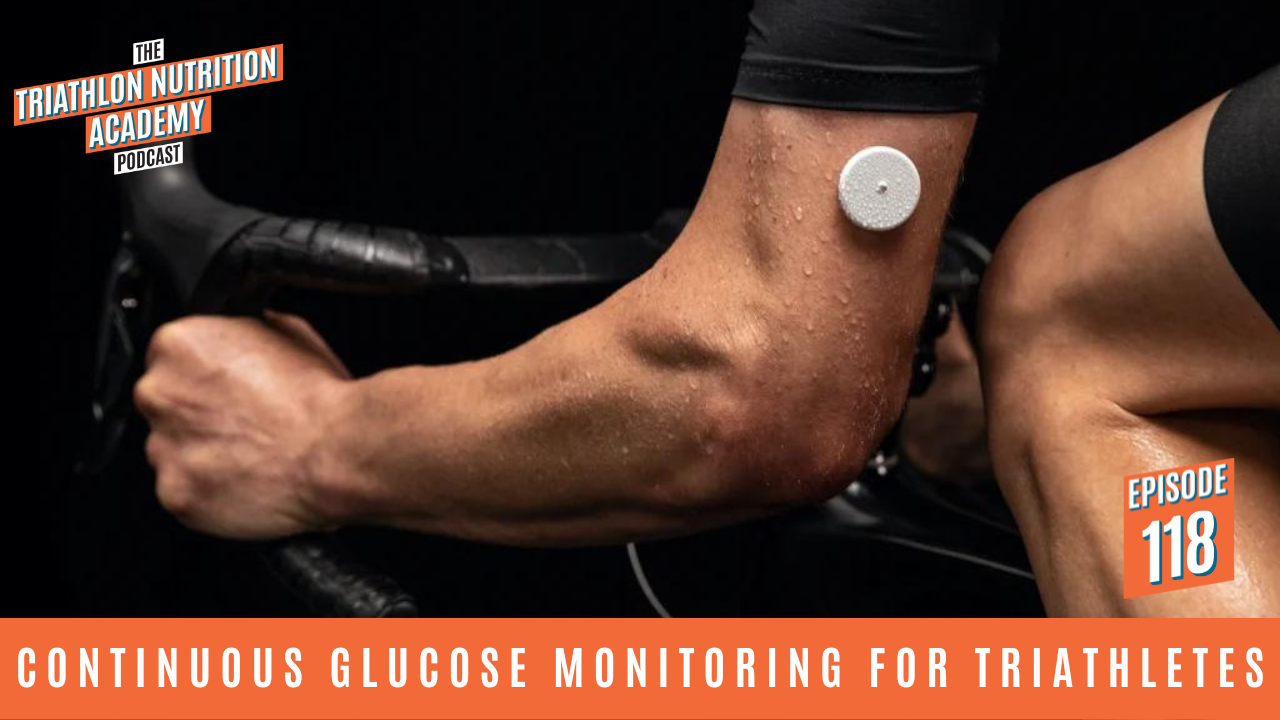
Curious about using a continuous glucose monitor (CGM) to guide your fueling?
This hot new tech is popping up on more triathlete wrists. But do CGMs actually optimise performance?
To find out, we tapped the expertise of sports dietitian Greg Cox. He recently published a comprehensive review paper examining CGM use and interpretation in athletes.
Let’s break down Greg’s key insights for triathletes considering whether to invest in a CGM:
What Exactly is a CGM?
- A small sensor inserted under the skin tracks interstitial fluid glucose levels. This mimics blood glucose levels with about a 10-15 minute delay.
- The data is continuously sent to an app on your phone or device. Both blood and interstitial glucose levels fluctuate rapidly, providing a useful window into your body’s fuel use and needs.

Why Use a CGM?
- CGMs provide exciting new objective data on how different intensities of exercise, rest, and nutrition influence blood glucose...
Get Out of a Nutrition Funk with a 3 Day Reset
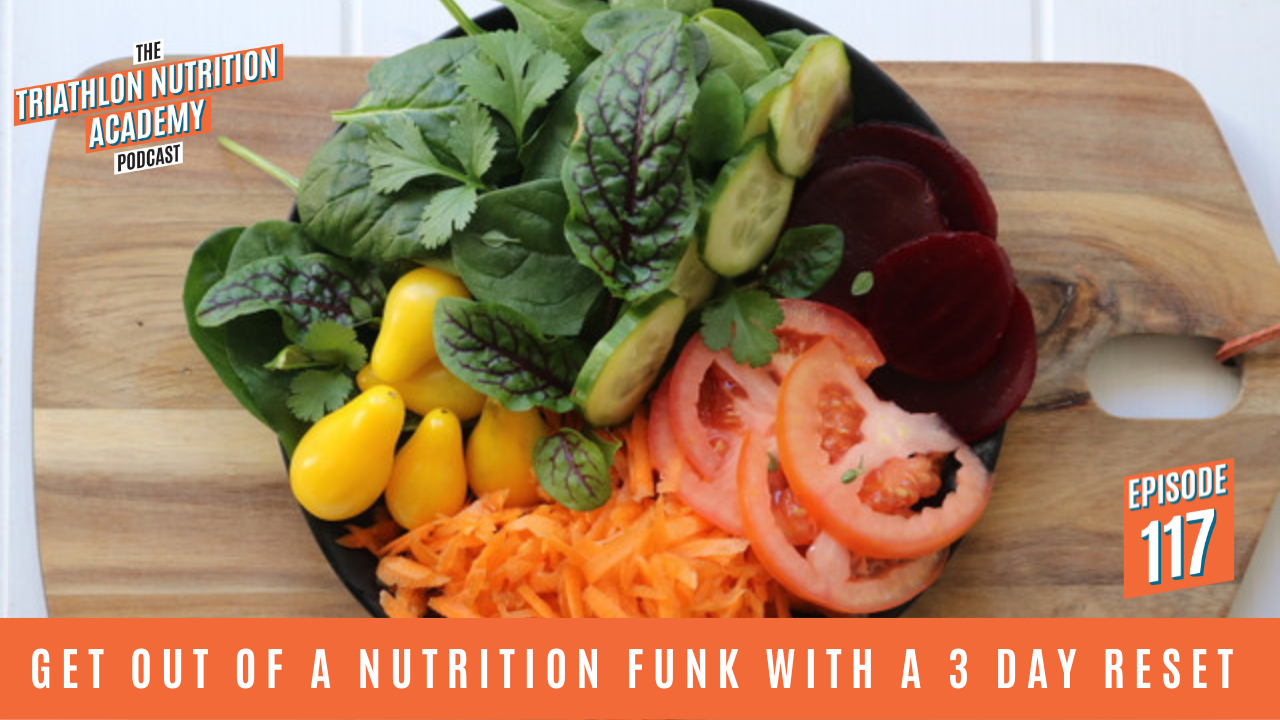
Feeling stuck in a nutrition funk? Craving junk 24/7? Energy levels in the toilet? It may be time for a reset.
Luckily, just 3 days is all it takes to regain your equilibrium and get back on track. No prolonged punishment or restrictive detoxes needed.
Let’s walk through how a short sharp shock can help level up your nutrition game.
Kickstart Momentum
A 3 day cleanse provides a powerful kickstart when you’re feeling off track. It stops unhealthy patterns, restores motivation, and ignites momentum towards your goals.
Even if you’ve been loosey goosey for weeks, a reset gets you back in the driver's seat fast. It draws a line in the sand and shifts your mindset from stuck to inspired.
Curb Cravings
Unmanaged cravings can quickly become habitual. A couple days of focused healthy eating can help override those ingrained urges for sugar, salt, and junk.
Fuel properly and the intense hankerings start to subside. Be prepared to white knuckle it...
Open Water Swimming Nutrition with Greg Shaw
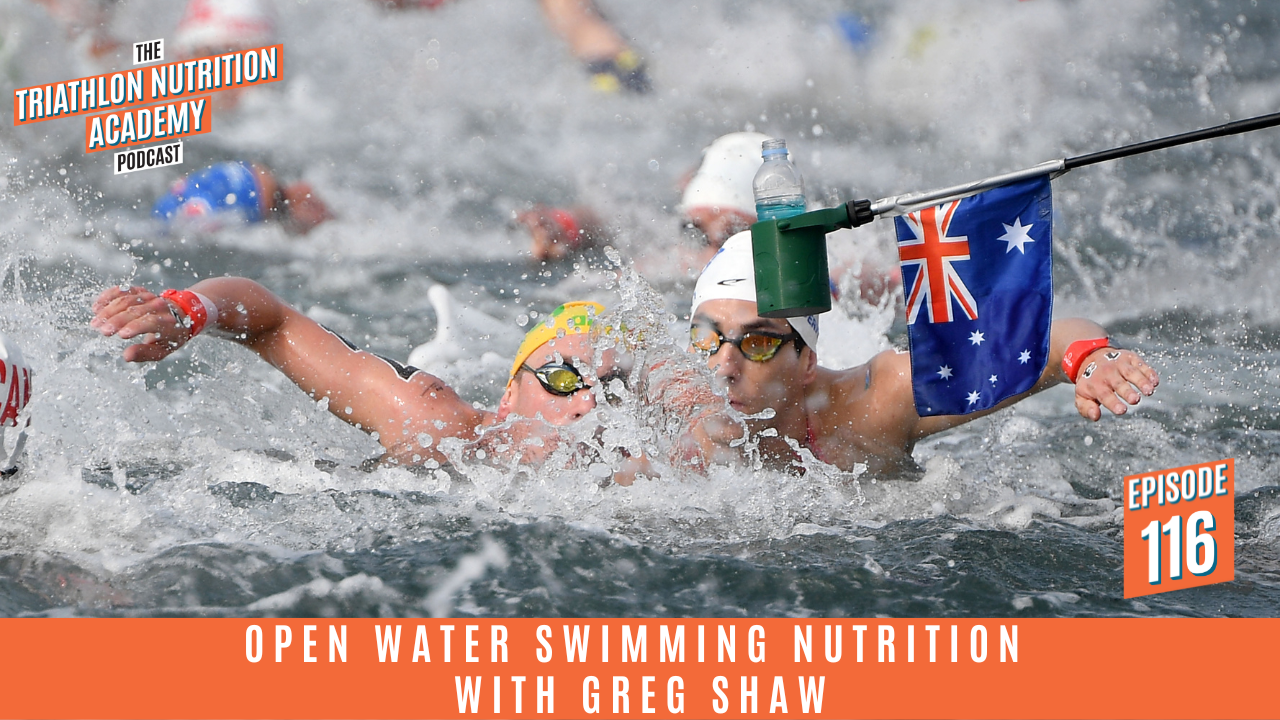
Conquering an open water swim brings a unique set of nutrition challenges.
The cold water, wetsuits, and limited feed zones require some savvy fueling strategies.
To help you nail your nutrition for open water events, we tapped the expertise of sports dietitian Greg Shaw. Greg has over 20 years of experience working with elite open water swimmers. He shared his top tips to help you avoid the bonk and negative gut issues during your next open water endeavor.
Fuel Right For Your Swim Distance
- For swims under 5km, loading muscle glycogen beforehand is often adequate. Exogenous carbs during the event may not be needed.
- Once you go over 10km the arms become significantly glycogen depleted. Taking on carbs during the swim is crucial.
- Know your anticipated intensity. Faster paces demand more carb oxidation from muscles. Plan nutrition needs accordingly.
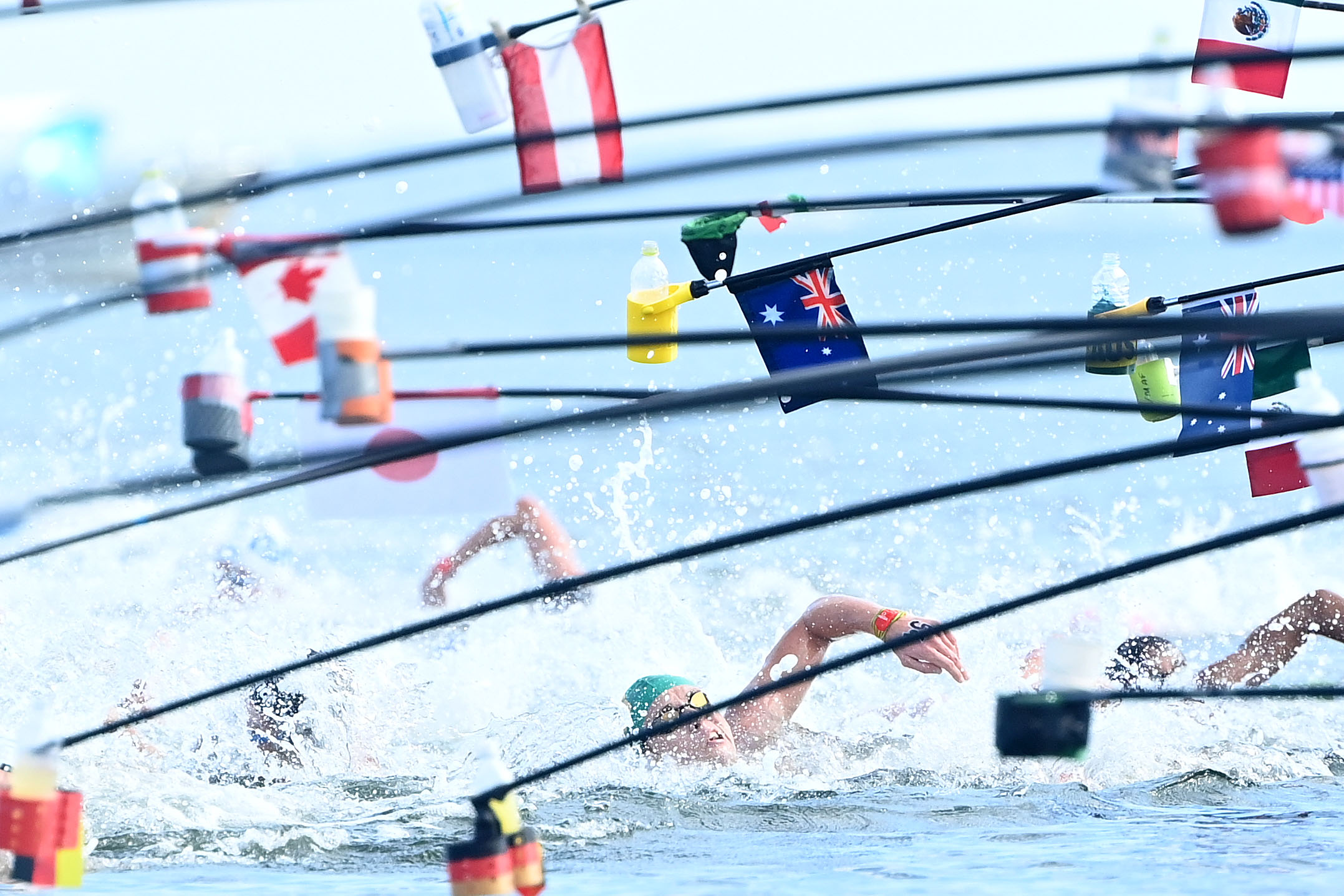
Load Up On Carbs
- For long swims, carbohydrate loading can extend endurance by maximising...
Retirement to Ironman in 18 months with Age-Group Triathlete Kelly Estes
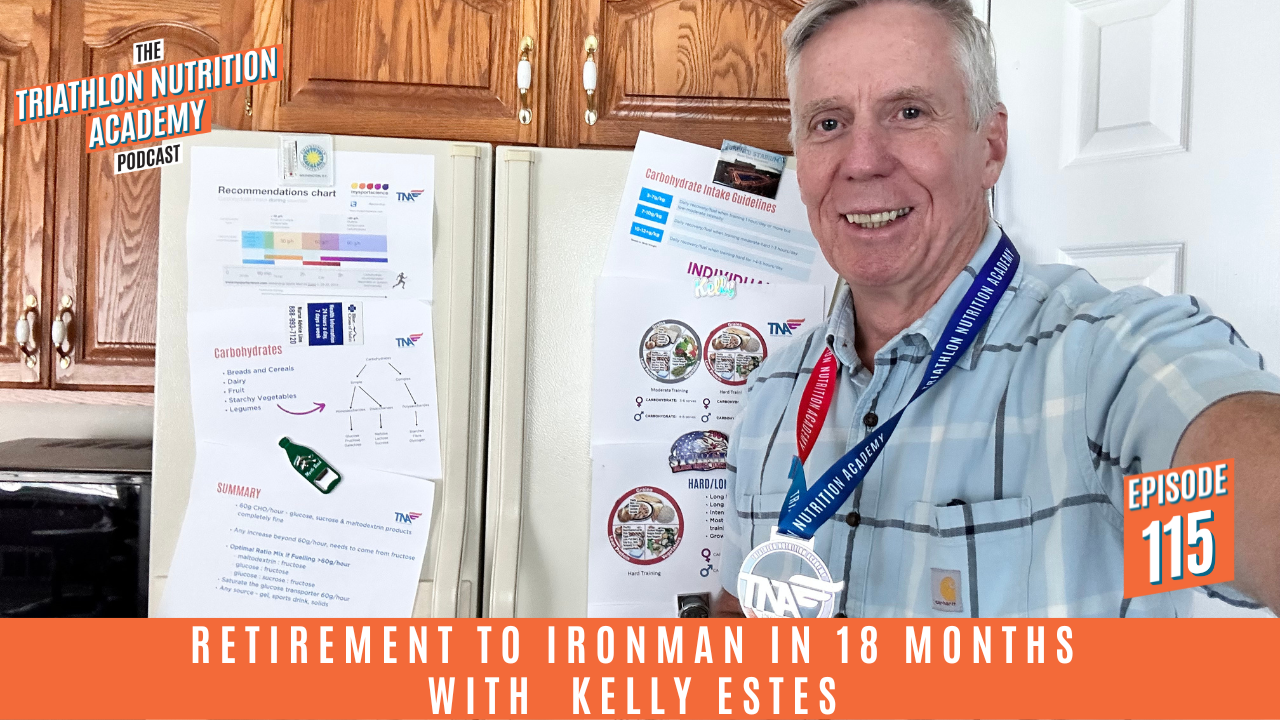
Triathlon is an intoxicating sport that gets under your skin. Once you’ve experienced the thrill of crossing that finish line, it’s hard not to set your sights on the next challenge.
Whether you’re just starting your multisport journey or have several tris under your belt, structuring your training and fueling is the quickest way to perform at your best. Proper periodisation, strong coaching, and dialled nutrition will have you rocketing towards new PRs before you know it.
To showcase how a strategic plan can transform your triathlon, we spoke with age grouper Kelly Estes.
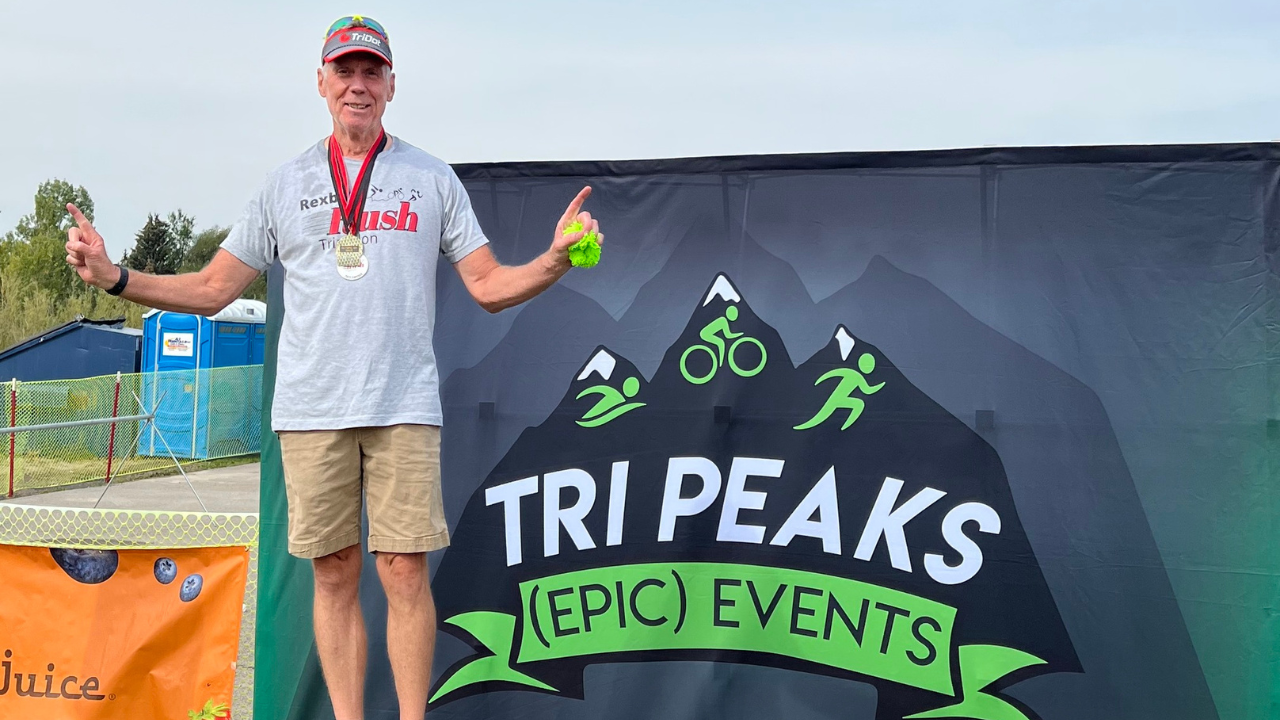
After a long corporate career, Kelly retired and dove into triathlon as his new passion project.
Over the past 18 months, he has gone from newbie to Kona-bound thanks to smart programming.
Let’s break down Kelly’s approach:
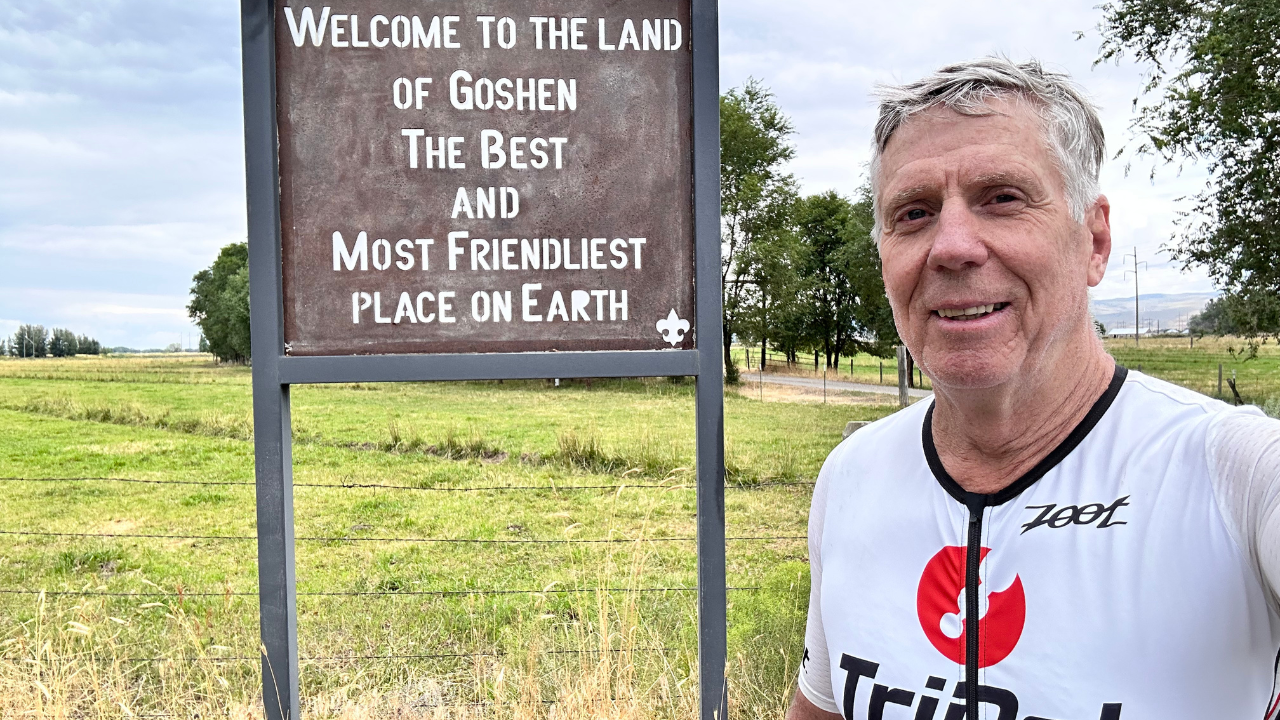
Solid Coaching Foundation
- Kelly uses TriDot’s AI platform to generate custom daily workouts and race predictions. This...
Caffeine and Sleep - New Research Update!

Feeling sluggish, sore, and slow lately? Your training may not be the problem - your sleep is.
Hitting the pillow at night is when the real gains happen. Quality sleep powers muscle repair, brain function, immunity and so much more. No other recovery tool compares. But in our chronically tired world, sleep is often the first thing we sacrifice.
Up to 45% of adults skimp on sleep. But cheating your zzz's comes at a serious cost.
Even mild sleep loss impairs focus, coordination, metabolism, and emotional health. Insufficient rest increases illness, and injury risk and kills workout quality.

So how much sleep do active folks really need? Despite the badge of honor for "surviving" on minimal sleep, most adults need 7-9 hours per night. Growing teens and hard training athletes often require even more – up to 12 hours.
Assess your current sleep by tracking time spent in bed and rest quality for a week. If you fall short of your needs, it's time to take...
Female Athlete Series: Part 2: Coaching Female Athletes with Liz Blatchford
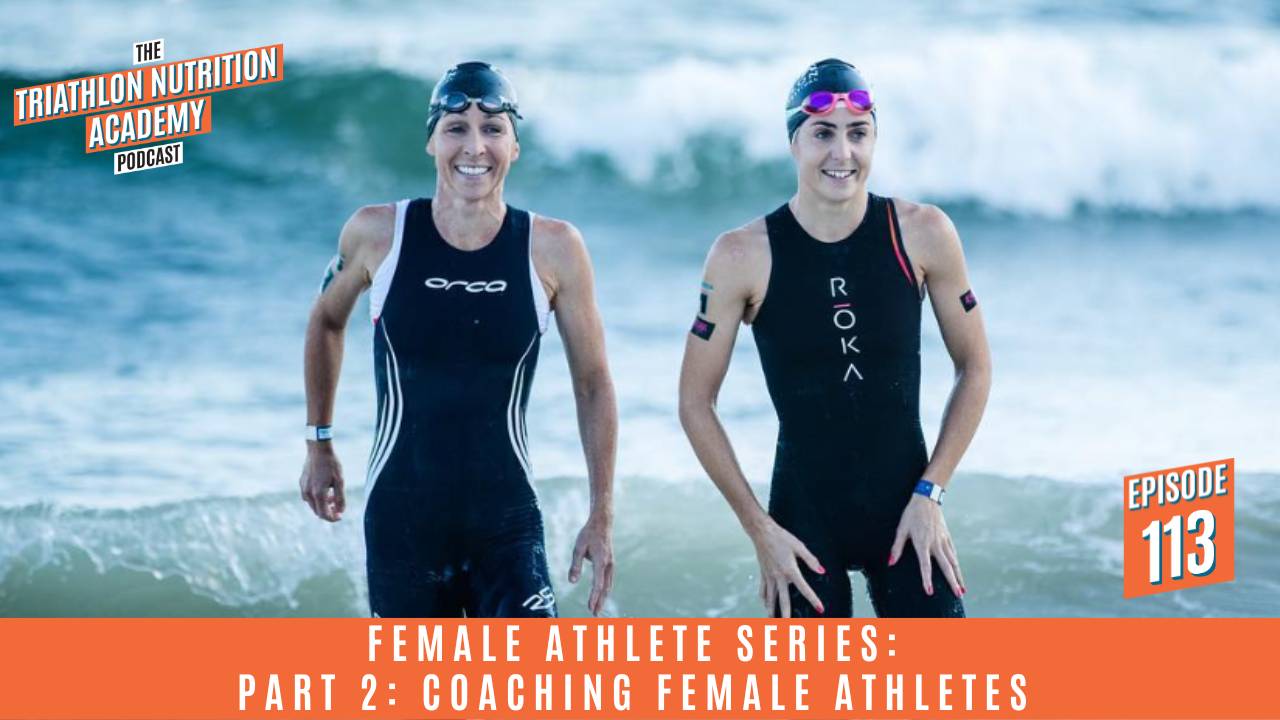
Dive into the physiological differences that distinguish male and female athletes in Part 1 of this 2 part series here.
Female athletes deserve coaches who understand their unique needs. Pro triathlete Liz Blatchford has a lot to say about optimising training and nutrition for the female form.
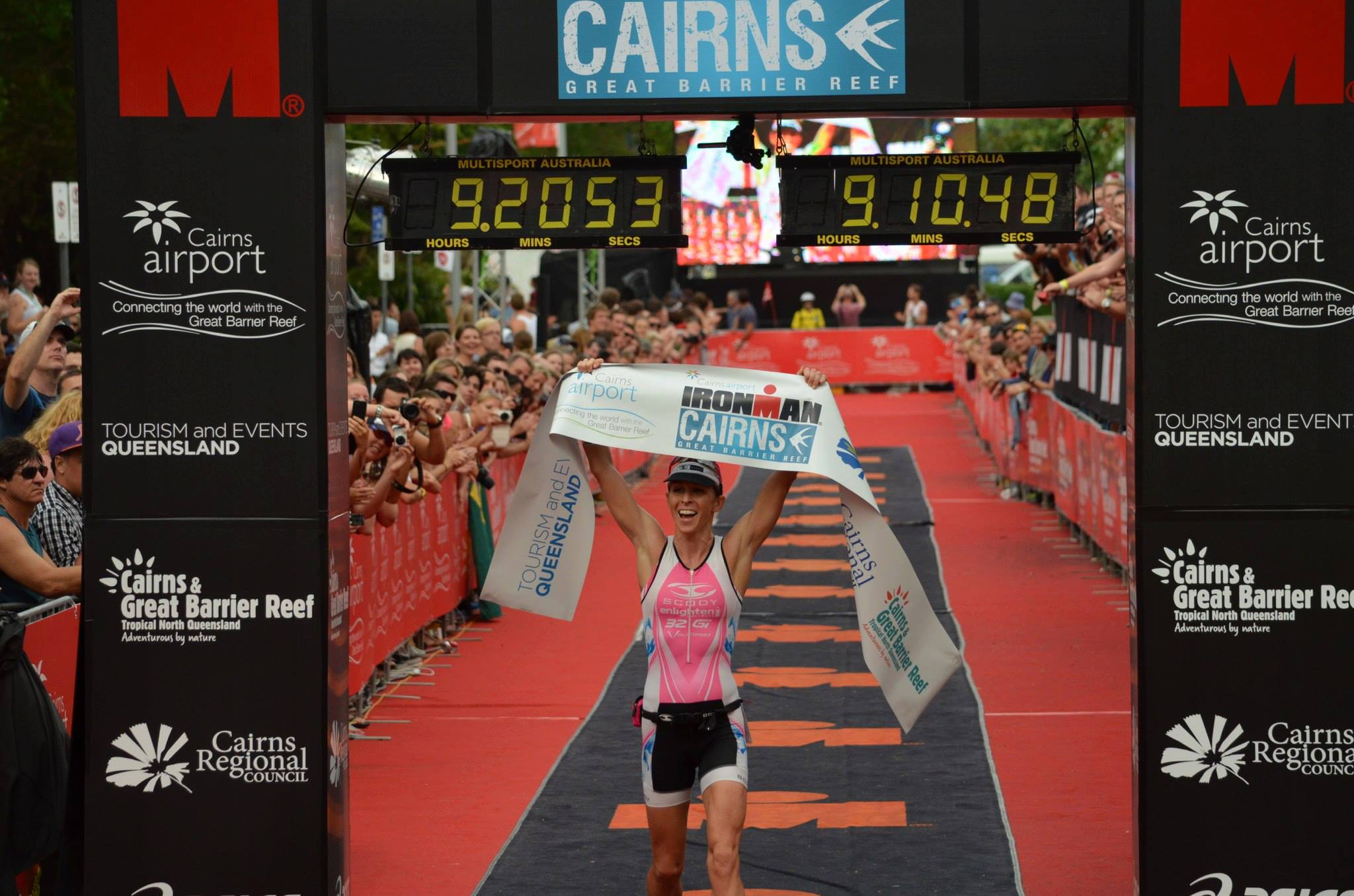
Finally recognising female differences
Research into female athletes is exploding, but it's long overdue. Historically, exercise was designed for men. It's only in the past few years that the focus has turned to us girls. There are still massive gaps in the evidence, but we're heading in the right direction.
In the early days of Liz's career, there was little discussion of female-specific factors, but this is changing, albeit slowly.
Research on female athletes is crucial because women are not just smaller versions of men, and their physiology, needs, and training responses differ.
Hormones and Performance
Every woman's experience is unique, and it's...
Data Driven Triathlon Training or Train By Feel? With Gerard Donnelly
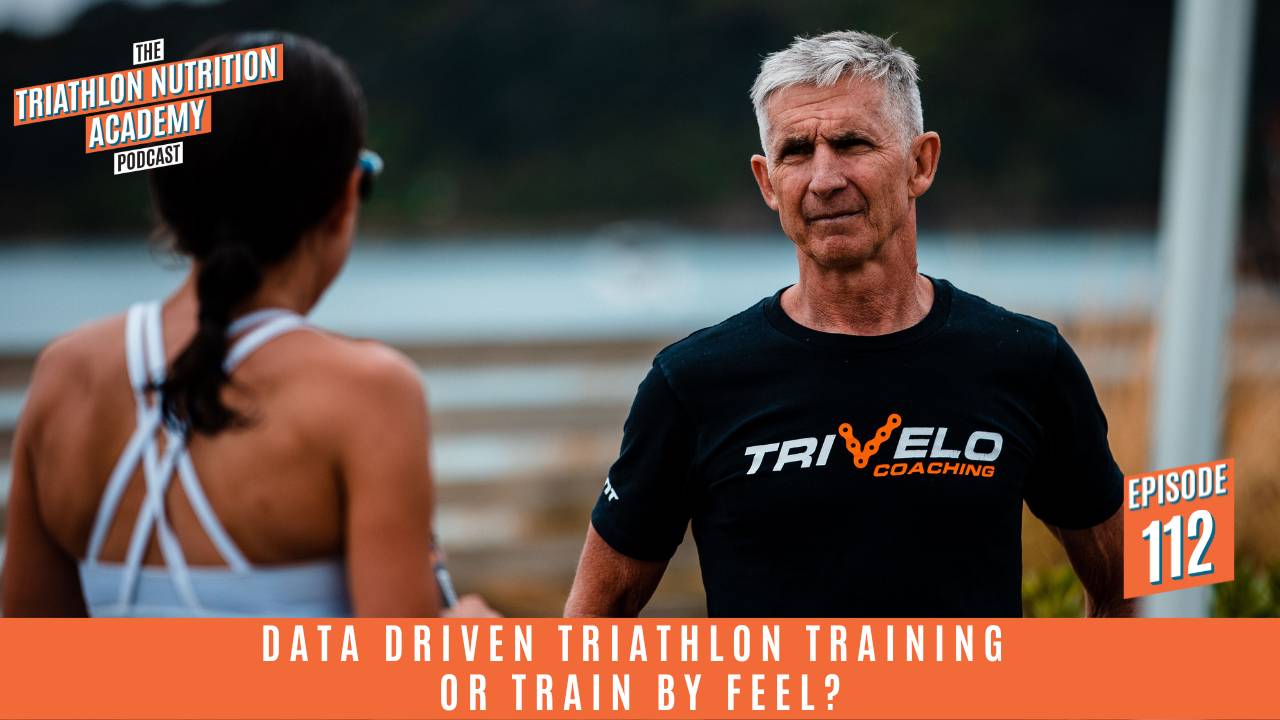
You want to get the most out of your training and racing, but how do you balance using data versus listening to your body?
It can be confusing to know whether to follow the numbers or trust your intuition.
Gerard Donnelly from Trivello Coaching has been coaching triathletes since 1988 and knows all there is to know about data driven triathlon training.
He was a pro himself for about five years and was the Australian Ironman champion and Australian Duathlon champion in 1988.
In 1989, he was the Australian Ironman runner up and he also represented Australia in the Commonwealth Games team in Auckland, New Zealand in 1990. He was also the Australian Masters champion in 2014, 2015, and 2017.
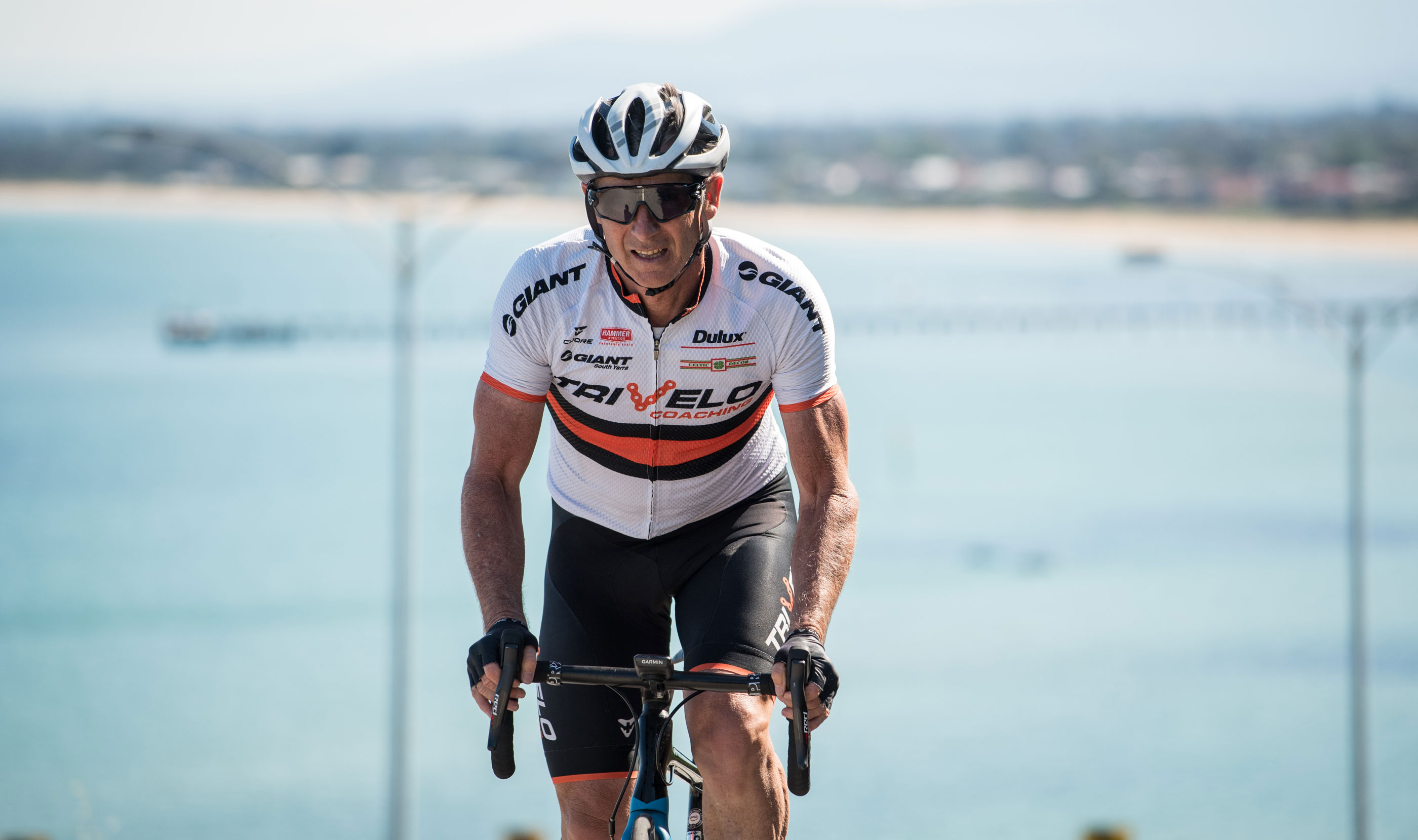
Gerard has a lot of experience firsthand as a triathlete himself and many, many years under his belt coaching triathletes from all walks of life as well.
Here are some of his tips for training smarter by combining data and feel:
Start with Testing
...
Five No Cost Tips to Help You Ride Faster and Feel More Comfortable on Your Bike with Bike Fit Specialist Michael Baker
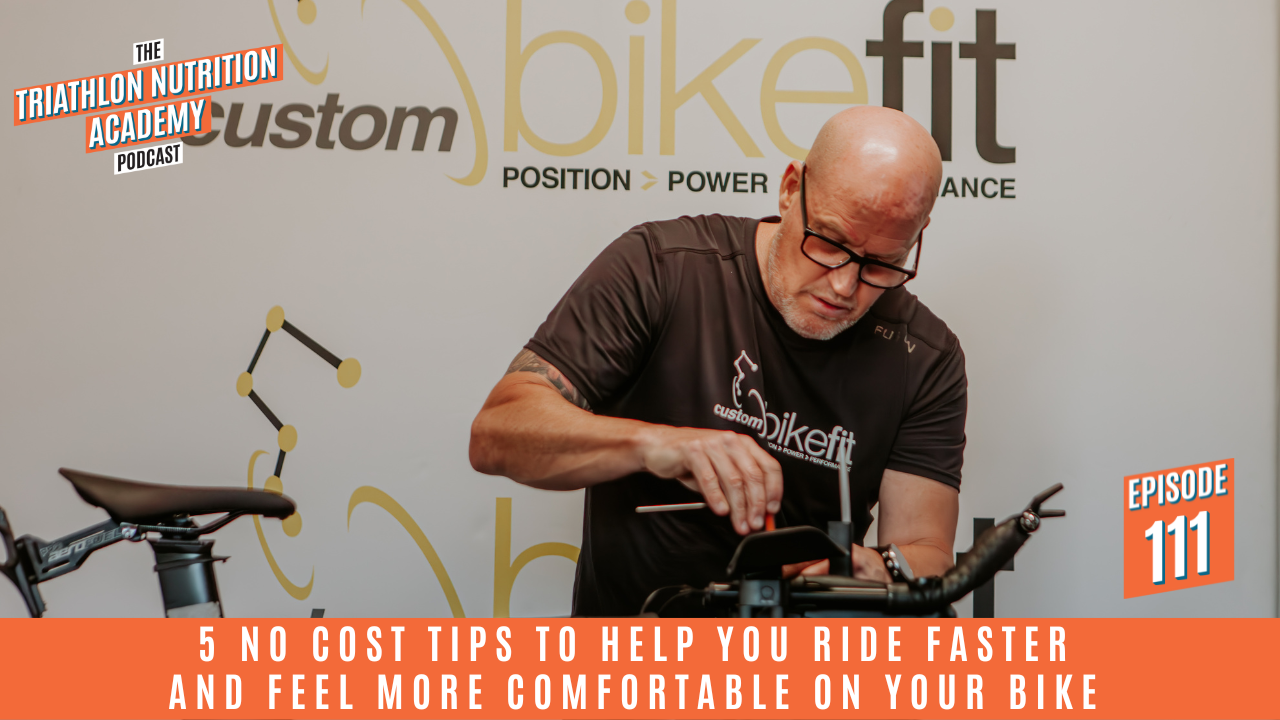
Michael Baker from Custom Bike Fit, is on a mission to help one million athletes feel more comfortable on their bikes.
As a triathlete himself and with more than 10 years of experience working with triathletes, he totally gets it.
And kindly shares lots of practical and zero cost tips with us to get you riding faster, with less pain, tick, and tick.
Michael believes in a personalised approach to bike fitting. Rather than relying solely on your height, he suggests configuring a bike based on your unique needs and preferences, down to the crank length.
Let’s break down a few of his suggestions.
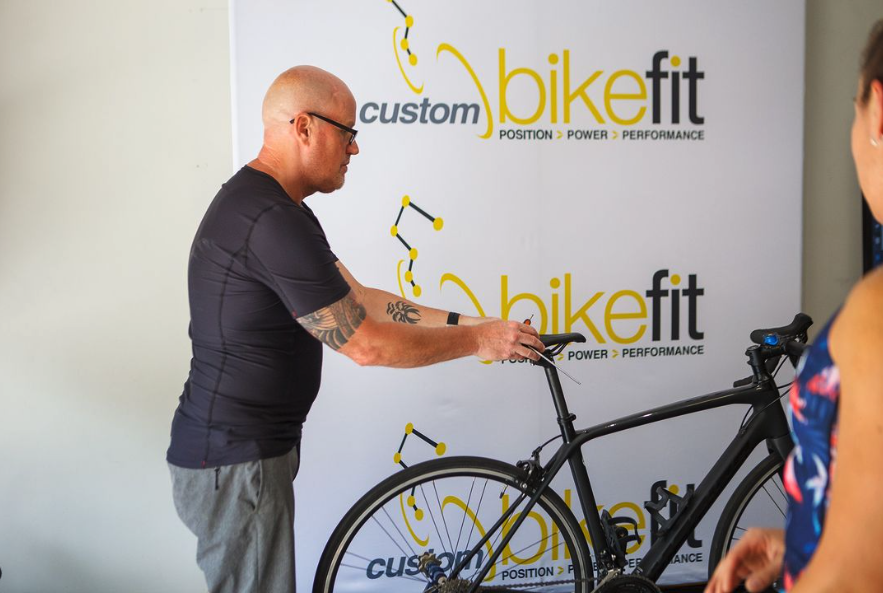
Invest in your bike
Before you buy a bike, consider investing in a bike fit session.
It's a small upfront cost that can save you thousands of dollars in the long run.
A proper fit can help you find the right frame size, crank length, handlebar width, and more.
Adjustability
When buying a bike, pay attention to its...
Is Organic Food Better For You? With Dr Hayley Dickinson
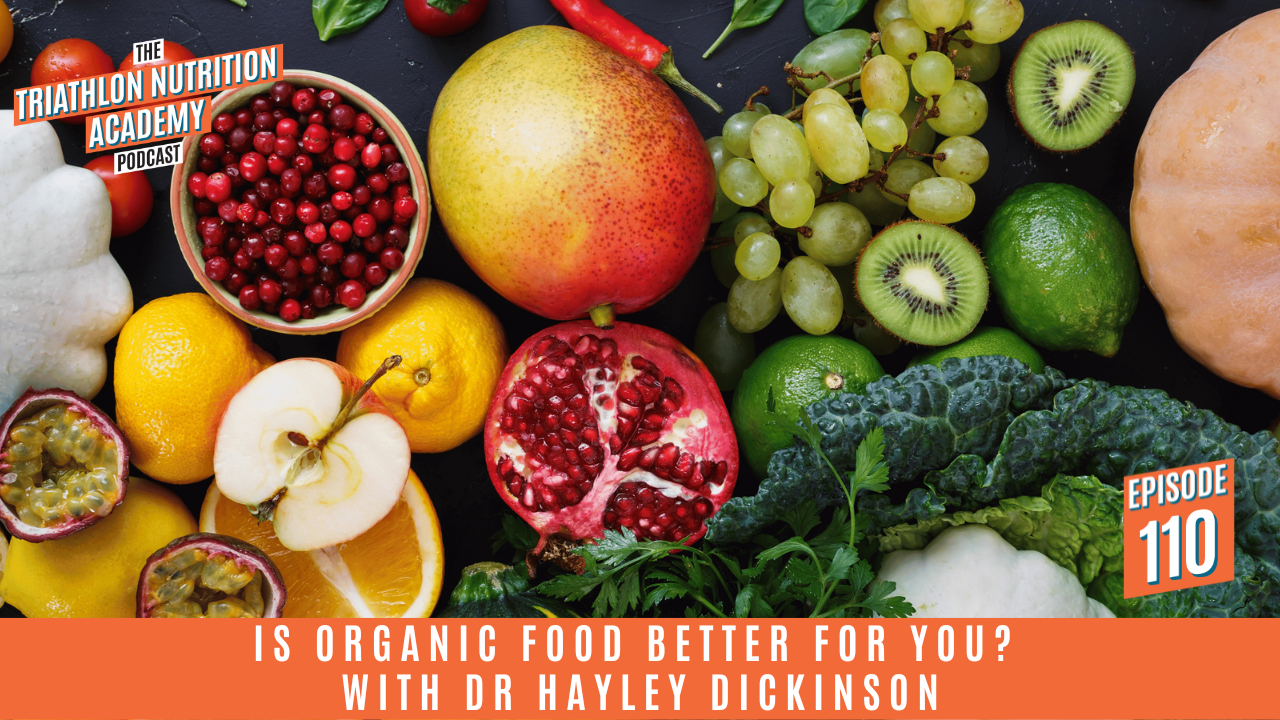
Let’s dive into organic food! Is it better for you?

Founder of Eat For You here in Australia, Dr Hayley Dickinson is the expert on all things organic food. (Learn more about Dr Dickinson by listening to her previous episode: Unravelling the Truth About Food Labels and The Nutrient Quality of Our Food with Dr Hayley Dickinson.)
Defining organic food
- Organic doesn't have a universal definition.
- In Australia, organic principles include high nutritional value, enhancing farming ecosystems, soil fertility, renewable resources, pollution avoidance, and environmental protection.
- Producers must adhere to these principles and get certified.
- The Australian Government has a detailed National Standard for Organic and Biodynamic Produce.
- This document outlines allowed inputs, land management, and certification requirements.
A costly transition
- Transitioning to organic farming is expensive and time-consuming.
- Farmers may experience yield drops during the...


